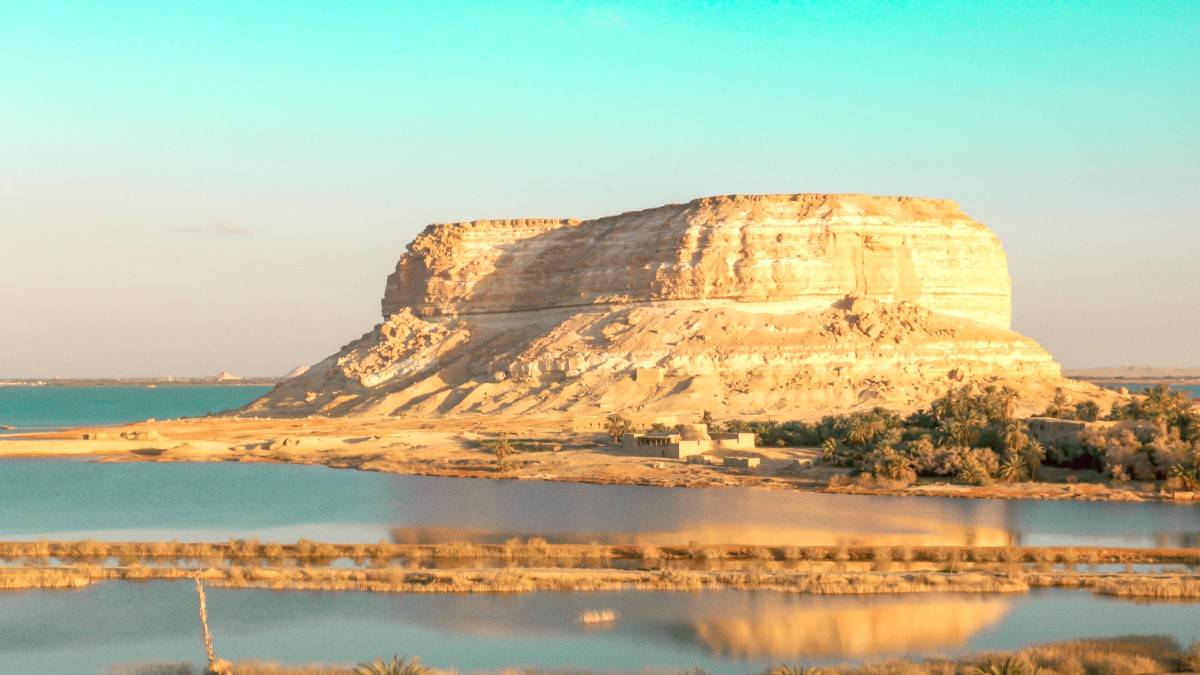
Western Desert, Egypt
Siwa Oasis experiences a desert climate, characterized by hot summers, mild winters, and very little rainfall throughout the year. Summer (June-August) brings extreme heat, often exceeding 35°C (95°F). Autumn (September-November) sees pleasant transitions to cooler days. Winter (December-February) yields the mildest conditions for exploration, though nights turn very cold. Spring (March-May) transitions from warm to hot, with occasional dust storms possible.
Rainfall in Siwa is rare and negligible. The oasis typically receives only a few millimeters of rain annually, if any. Dry conditions prevail year-round.
Most non-Egyptian nationals need a visa for entry. Siwa Oasis itself holds no unique entry requirements beyond those for Egypt.
Common visa types for tourists include Tourist Visas (Single or Multiple Entry), Visa on Arrival (VOA) for many nationalities (purchase upon landing for $25 USD), and E-Visas (apply via visa2egypt.gov.eg at least 7 working days prior). If not eligible for VOA or E-Visa, obtain a visa from an Egyptian embassy or consulate before travel.
Minimum 6 months beyond entry.
Carry several photocopies, stored separately.
Typical tourist activities in Siwa do not necessitate special permits.
E-Visa or Embassy/Consulate.
Available for many citizens ($25 USD single entry).
Onward/return flight or hotel reservations may be requested.
Check latest advisories.
No specific health declarations currently required for entry.
The border crossing with Libya stays closed to foreign tourists.
The official currency is the Egyptian Pound (EGP), locally LE. Banknotes include 1, 5, 10, 20, 50, 100, 200 EGP. Exchange major currencies (USD, EUR, GBP) at banks in major cities. In Siwa, exchange options are limited to a few local banks.
Credit card acceptance is limited in Siwa. Larger hotels may accept them, but most transactions, especially in local shops, restaurants, and for tuk-tuk rides, are cash-only. Relying on cash for daily expenses is wise.
~$25 - $50 (hostel, street food, tuk-tuks, shared tours)
~$50 - $100 (mid-range lodge, local restaurants, organized tours)
~$100+ (boutique eco-lodge, fine dining, private transfers & tours)
EGP 200-4000+ per night
EGP 30-800+ per meal
Consult your doctor or a specialized travel clinic 4-6 weeks before your trip for personalized recommendations.
Traveler's diarrhea, heatstroke, dehydration, sunburn, and insect bites may occur.
Keep these numbers handy:
Eat Local: Focus on smaller local eateries and street food for delicious, authentic meals at a fraction of the cost.
Walk or Cycle: Siwa town is walkable. Bicycles offer a cheap and pleasant way to explore nearby attractions like Cleopatra's Bath and Fatnas Island.
High season (Oct-Apr) has higher prices; low season (Jun-Aug) has lowest prices. Book well in advance for popular eco-lodges.
Budget: EGP 200-400 (hostel/basic guesthouse)
Luxury: EGP 1500-4000+ (boutique eco-lodge)
Local eateries and street food offer authentic meals at lower prices compared to hotel restaurants.
Street food/Snack: EGP 30-100
Restaurant meal: EGP 150-400 (main dish)
Bicycles are economical. Shared jeep safaris lessen individual cost.
Bicycle rental: EGP 50-100 per day
Full-day desert safari: EGP 1500-3000 per vehicle
| Attraction | Cost (EGP) | Notes |
|---|---|---|
| Oracle Temple | 60-150 | Foreigner entrance fee |
| Mountain of the Dead | 60-150 | Foreigner entrance fee |
| Shali Fortress | Free to explore | Some areas may have small local fees |